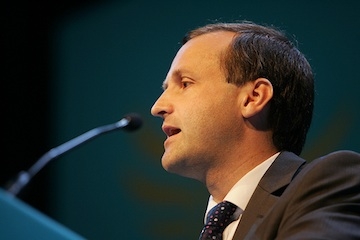Hargeaves Lansdown says the DWP is right to consult on a charge cap on workplace pensions and changes should be made, particularly on older schemes.
As widely expected, Pensions Minister Steve Webb announced today that there would be a debate on a move towards a cap of 0.75% or 1% per annum. The government is also consulting on whether to ban Active Member Discounts, where company pension members pay less in charges when they work for the company, but more once they leave.
The DWP says government's reforms should reduce the charges on pension schemes used for auto-enrolment. It says this will be a crucial step in improving value for money for consumers.
The government expects up to 9m people to open new pensions as part of the auto-enrolment scheme, increasing the amount being saved in to workplace pensions by around £11 billion per year.
The DWP says that while the average charge on new pension schemes is around 0.51% the Office of Fair Trading estimates that there are over 186,000 pension pots with £2.65bn assets that are subject to an annual charge of above 1%. The DWP says that these differences can equate to considerable amounts of money. For example, in the case of someone who saves throughout their working life (46 years at £100 per month), they could end up losing almost £170,000 from their pot with a 1 per cent charge, and over £230,000 with a 1.5 per cent charge.
Options being considered by the DWP include:
• A higher charge cap of 1 per cent of funds under management
• A lower charge cap of 0.75 per cent of funds under management
• A two-tier 'comply or explain' cap. There would be a standard cap of 0.75 per cent of funds under management for all qualifying schemes. A higher cap of 1 per cent would be available to employers who reported to the Pensions Regulator why the scheme charges in excess of 0.75 per cent.
{desktop}{/desktop}{mobile}{/mobile}
Minister for Pensions Steve Webb said: "The government believes that enough is enough on charges. People need to know they are getting value for money when they save into a pension and not being ripped off by excessive charges. A range of options will be on the table including an outright ban on all charges above 0.75% per year."
Laith Khalaf, head of corporate research at Hargreaves, said: "Lower charges are positive for pension savers and should encourage people to put more aside for their retirement. The government needs to ensure however that it does not prompt a wholesale decline in the quality of pension schemes, just as millions of people are due to be automatically enrolled into them.
"Competition on charges in workplace pensions is fierce and schemes set up today already offer members very good value. The main problem in the market, as identified by the OFT, is older schemes, in particular those set up prior to 2001." Mr Khalaf said employers with these schemes should review the market as they can almost certainly get a better deal now.
The Office of Fair Trading in its recent report on workplace pensions concluded a charge cap was not desirable: '...charge caps can create a risk of unintended consequences. Set too high, a cap can become a target for providers. Set too low, a cap can create incentives to lower quality... ' (Defined Contribution Workplace Pension Market Study, OFT, Sept 2013)
The OFT also highlighted legacy schemes written before 2001, and smaller trust-based arrangements, as the main areas at risk of producing consumer detriment. They found that the average scheme set up in 2012 had an AMC of just 0.75%.
NEST has a contribution charge of 1.8% and an annual charge of 0.3%. Someone joining NEST one year before retirement will pay over 2% in charges. Anyone joining NEST with less than 7 years until retirement will pay more in charges than a 0.75% AMC (assuming 6% fund growth).
In reaction to the news, Neil Carberry, CBI director of employment and skills, said: "Businesses across the country want low cost schemes for staff. Greater clarity on charges is the best way to achieve this. Though the recent Office of Fair Trading report on pensions did not conclude a cap was necessary, introducing one for automatic enrolment schemes may be helpful if it is set at the right level. Given average pension charges are currently at historic lows, it's important that any cap doesn't have the effect of levelling charges up."
Adrian Boulding, Legal & General's pensions strategy director, wants the government to go further. He said: "In the interest of value for money for consumers, nobody should have to pay more than half a percent for auto-enrolment - 0.5% is the benchmark for value, and large schemes have already demonstrated that it's perfectly achievable. Legal & General believe that 0.5% is where Government should pitch the price cap."

